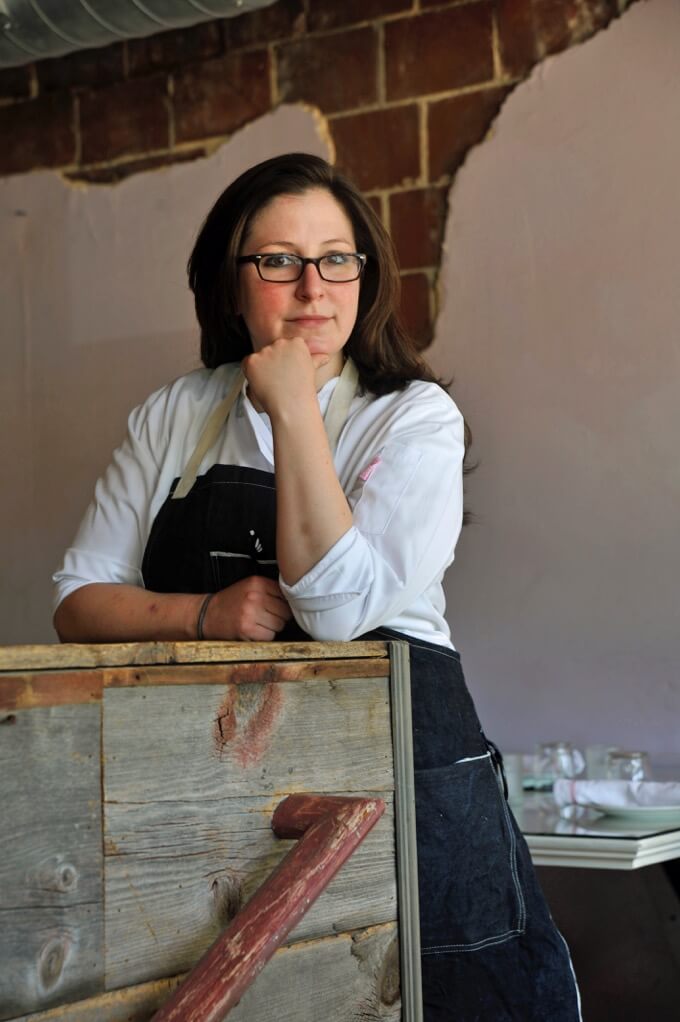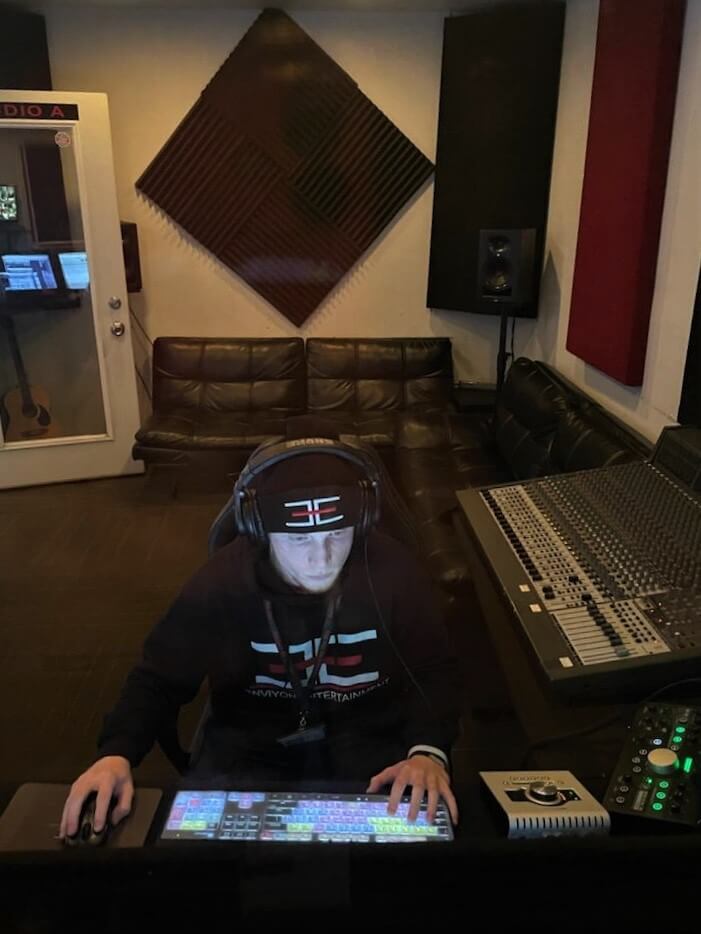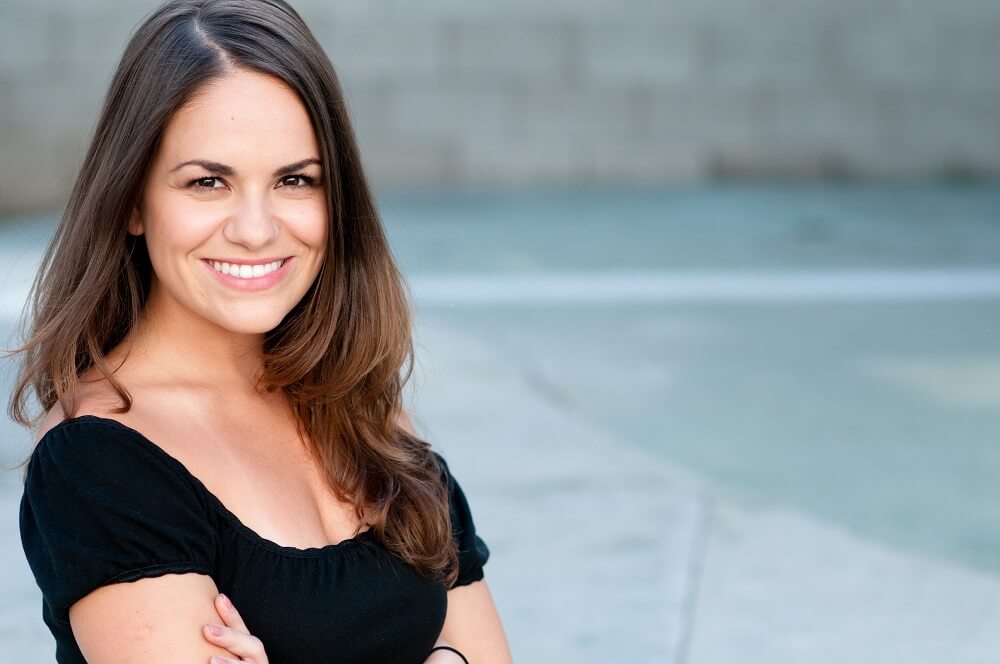
CASA mentor Chef Kristin Beringson, Executive Chef, The Fairlane Hotel & former Chopped champion
Kristin Beringson, Executive Chef of The Fairlane Hotel in Nashville, and former
Chopped champion has a passion for the culinary arts, a fierce work ethic, and a tendency to think outside of the box. We recently caught up with the busy chef to hear what she has to say about our culture’s perception of chefs as “Billy Bad-Asses” thinking beyond the norms, and setting oneself up for success at learning the many facets of the craft.
You’re a proponent of out-of-the-box thinking and pushing beyond traditional notions of “fine dining.” You encourage others to do the same.
“Most students come in and they tell me that they want to do fine dining. I’m like, ‘Okay, well, what is it about that, that you like?’ ‘Well, it’s what I see on TV and it’s beautiful. And I like plating.’ And I’m like, ‘Okay.’ But it’s about, like, this whole thing, like, you can do quick-service breakfast, you can do fast-casual. Like, there’s food trucks. I think there are so many different kinds of dining. To just associate being a chef with this one type of cuisine, and
not just cuisine but service style, I guess what I’m saying is it’s very narrow-minded.
It’s what TV has done to us. Like, we’re all [on]
Top Chef and we’re all doing the exact same thing…. But the business side of it is that you could make money in so many different avenues of cuisine. And understanding that maybe the guy with the food truck on the corner is maybe making more of a profit margin than me up here on the fourth floor of this hotel, like, it’s all in how we handle our business. And that’s where the business side of [being] a chef is from, instead of just me with my tweezers placing little, tiny bits of food on a plate.”
Watch our Straight Talk video with Chef Beringson below for more insight into what being a chef really entails!
What are the qualities and behaviors of a CASA student who does well in our gourmet chef program?
“The students that are the most impactful to me as a mentor are the ones that have the desire to learn everything. Like, it’s not just the ones that want to learn how to cook. It’s the ones that learned that a truck has to be put away. They learned that, you know, they’ve got to be the best at salad before they can be the best at fry…. They understand the different components and how they work together in a kitchen. Like, understanding that a brigade system exists for a reason…. It’s just like this whole piece that I think the best students have to understand that, you know, it’s not just
learning from me, it’s learning from
everybody in the kitchen, and the culmination of all of those experiences, and all of those job duties, and all of the everything that exists in a kitchen, [who] make the best students in this program.”
Do you have anything to say about the hip bad boy/bad girl chef stereotype? What’s the reality of it? What’s maybe misunderstood?
“A lot of the television programs and reality shows, they’ve taken a working-class blue-collar human and made it this, like, hip cool thing. So now we’re perceived as hip and cool, but we’re still like this working-class blue-collar thing. I always joke around when I’m in the dish pit, spraying off pans, covered in muck, I’m like, ‘Hey, take a picture. Let’s show them what it’s really about.’ Like, let’s show them how glamorous being a chef really is.
I mean, I have “salt” tattooed on my seasoning finger…. Like, we do like the bad boy vibe…. The field itself attracts a certain genre of human which is kind of what I like about it. You know, I can be grouped together with like-minded individuals from all different backgrounds, but we do have a common kind of thread, and that’s our love for food and that we’re kind of like odd ducks. So, I think that’s a beautiful thing. It’s like food is our language and it connects us.”
Get more in our Straight Talk video below!
Have you had any star students you’d like to tell us about?
“Cody Woodside he’s wonderful. He’s amazing.”
What was good about him as a student?
“Honestly, Cody was a really solid self-learner, like he was hungry for information. And it didn’t matter who he got it from, whether it was myself or the girl that baked bread for me, or the pastry chef, or the prep cook. He would go out and get the information out of whoever had it in their brain…. I think the people that are most successful with this program are the people that are hungry for information…. I’ve had a few that just stand next to me and look at me like they’re going to learn my brain info from osmosis. And I’m like, ‘You’re never going to make it in this industry if you think
staring at a chef is going to make you one.’ Like, you have to want the information and you have to want to go get it….
My first student, his name was Chase Greenhalgh. He was just like this quiet guy and I didn’t know much about him. He really would just come in and start chopping brussels sprouts every day. And, like, he just was really sweet. And I ended up opening a new restaurant, the Green Pheasant, it’s a Japanese joint downtown. It’s since closed due to COVID. But he came on as one of my employees. And I swear, he started on little sushi station and then he’d go over to walk and learn some [new] things. And then the next thing, he would go over and learn sauté. And the next thing, he would go learn grill.
And he just kind of did it on his own until he was the best cook in the whole kitchen all by himself. And I can’t say enough good things…. I wish I would have known how good and how motivated he was. But he didn’t have that communication piece to that thing that we do. But as a whole, he’s probably one of my greatest students just from, like, a well-rounded, lovely cook standpoint.”
Why do you choose to mentor for CASA?
“I’ve always liked teaching. When I went to The Art Institute here in Nashville, I did like a sous chef, like, internship mentorship program through them. So I was one of the chef instructors’ sous-chefs. And I really enjoyed teaching and I really enjoyed interacting with the students…. You can learn a lot from a culinary instructor, but you can learn more from a true culinary worker, which is what I enjoy about the CASA program.
In culinary school, if you break hollandaise, the chef is going to yell at you and say, ‘Start again. It’s trash. Throw it away. Start again.’ But I think, as a culinary worker, I’m going to say, ‘Okay, it’s trash, but this is how you fix it.’ So, it’s two different perspectives. And it’s two different kinds of realities. Like, culinary school isn’t a realistic approach to learning as opposed to like real kitchen learning experience, which is what CASA offers.”
Want to get going in the culinary arts? Learn more about CASA and how we
do culinary education differently.
* * * * *




